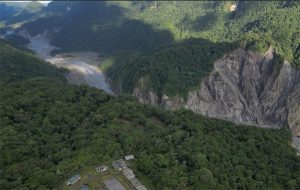
After five weeks in office, President Gustavo Petro’s administration in Colombia faces key challenges in improving the economy and combating insecurity, as highlighted in new analyses this week. In a regional primer on Latin America’s looming inflation crisis, Bloomberg explains that high inflation has had a much greater impact on poorer, more vulnerable Colombians. Their inflation rate is nearly 13%, as opposed to 11% and 9% for middle-class and rich Colombians, respectively. Reforming Colombia’s economic model and conducting peace negotiations and a “total peace” security strategy are key to Petro’s agenda. A new Colombia Risk Analysis report also highlights how these objectives relate to foreign relations, writing that “Petro is focused on reestablishing relations with Venezuela and improving relations with Cuba, as both countries are integral in the peace negotiations with the ELN. Early success for the tax reform and the negotiations with the ELN are quick wins Petro wants to obtain to establish his legacy as Colombia’s first left-wing leader.”
At the Latin America Risk Report, James Bosworth and Lucy Hale explain that Petro has sought to conduct peace negotiations with the ELN and other armed groups, but he has received pushback thus far. Furthermore, recent killings of police officers and continued violence highlight the challenge at hand. They write, “It’s true that Petro’s “total peace” strategy is not totally clear or fully defined… At the same time, analysts should be cautious of a double standard in terms of how they consider presidents who seek peace with a muddled strategy vs presidents who launch military deployments with a muddled strategy. Regional media are too often willing to give the benefit of the doubt to presidents who engage in mano dura or militarization (see Bukele or AMLO) while demanding fully detailed strategies from presidents who push policy in the opposite direction.”
More Colombia
- “Colombia’s new leftist government is seeking to require environmental licences for mining exploration as part of a wider overhaul of the process for awarding concessions, according to the country’s environment minister,” reports Financial Times.

Argentina
- IMF Managing Director Kristalina Georgieva and Argentine Economy Minister Sergio Massa met on Monday to conduct a second review of the country’s $44 billion debt program, which the international organization said maintains on course, according to Yahoo Finance. During Massa’s week-long trip to the United States, he also met with US Treasury Secretary Janet Yellen, various high-level executives, and others, reports Bloomberg.
- President Alberto Fernández was allegedly the next intended target of the shooter who intended to assassinate Vice President Cristina Fernández de Kirchner, says Buenos Aires Times.
Bolivia
- Over 854,724 hectares of forests have been decimated by a fire in Bolivia, a country struggling to put out 24 active fires, reports Página Siete.
Brazil
- Despite earlier reports to the contrary, “Brazil’s electoral authority on Monday said there was no deal for the military to conduct a parallel count during October’s election, while a military source also said there was no plan for the vote count that President Jair Bolsonaro has pushed for,” reports Reuters.
- Ahead of the October presidential elections, Brazilians appear to be better poised to combat election mis- and disinformation than they were during the 2018 elections, writes Cristina Tardáguila for Americas Quarterly.
- Former environment minister and presidential candidate Marina Silva has endorsed former rival and current presidential candidate Lula da Silva ahead of the upcoming presidential elections, proof of the successful efforts by Lula to reach out to and engage with an expansive coalition of voters, reports AP.
Chile
- Ana Rodriguez at Chile Updates provides an overview of local reactions to the Rechazo of the new constitution, highlighting the voices of indigenous leaders and high-level government officials, among others.
Ecuador
- President Guillermo Lasso called for a referendum vote that would “approve a reduction in the number of lawmakers, allow the military to support police work to fight drug trafficking and back efforts to protect water sources,” reports Reuters.
El Salvador
- Yesterday, El Salvador officially launched the option to repurchase its 2023 and 2025 external debt, announced President Nayib Bukele on Twitter. The deadline to submit offers is September 20, according to the press release published at PR Newswire.
- La Prensa Gráfica details abuses throughout El Salvador’s ongoing state of exception—which has resulted in 51,000 arrests—noting that the day before it began, the director of the national civil police ordered that the country’s police go after the MS-13 gang, specifically, ignoring the country’s other main gang, Barrio 18.
Mexico
- AMLO’s move to place the National Guard under the command of the Ministry of Defence, “formalizes the militarization approach the president has made during the nearly four years of his administration, breaking his campaign promise to demilitarize and doubling down on the military as a critical instrument for both security and infrastructure projects.” And a militarized strategy has not worked thus far, writes James Bosworth at WPR.
- “It’s unclear how the military’s rising prominence could hamper efforts to hold some of its members accountable for Ayotzinapa, and there are signs the government is treading with caution. The commission’s report itself includes redacted materials that appear to conceal aspects of the military’s role. Though 20 of the arrest warrants issued were for soldiers, the commission’s top official, Encinas, waited more than a week after the report’s release to reveal a stunning piece of information: For at least four days after the 43 students disappeared, six were kept alive in a warehouse before being turned over to a military officer, allegedly Col. Jose Rodriguez Perez, who ordered them killed,” writes Carin Zissis at WPR.
- One of AMLO’s projects, intended to funnel government funds into fixing schools, has only reached 36% of the country’s campuses, and it is unclear how over $23 billion of the public budget was used for the program, reports Animal Político.
Paraguay
- If Brazil’s largest gang, the First Capital Command (Primeiro Comando da Capital – PCC) is indeed expanding into the marijuana cultivation business in Paraguay, it “would mark a major change in Paraguay’s marijuana-growing process,” writes Insight Crime.
Peru
- The Wanderland Mennonite association is one of three Mennonite communities “being investigated by Peruvian prosecutors over accusations of illegally deforesting more than 3,440 hectares (34 sq km) of tropical rainforest in the past five years,” reports The Guardian.
Regional
- Various social programs across the region aim to address underlying causes of violence, poverty, and discrimination against women, writes Fulton Armstrong at Aula Blog.
Venezuela
- Nicolás Maduro announced on Monday that joint elections for the National Assembly, governors, and mayors would be held in 2025, according to Crónica Uno. The National Electoral Council (CNE) has not yet made any announcements on the matter.
- “President Nicolas Maduro has been striking deals with bigger miners, seeking more production and more revenue for the treasury,” pushing out local artisanal gold miners, reports Reuters.
- Venezuela’s migratory crisis continues, as El Venezolano reports that 23,632 Venezuelans crossed the Darien Gap between Colombia and Panama in August.
Arianna Kohan y Jordi Amaral / Latin America Daily Briefing
http://latinamericadailybriefing.blogspot











